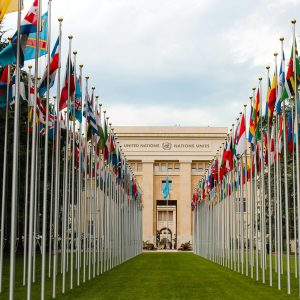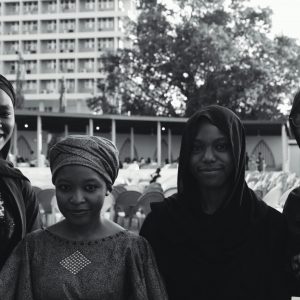India’s new waqf law triggers alarm, Muslims pin hopes on Supreme Court
Asaduddin Owaisi and other leaders warn of mass dispossession under controversial law, calling it a systematic assault on religious freedoms and minority rights
NEW DELHI, India (MNTV) — A controversial new law regulating Muslim religious endowments has triggered alarm and a deep sense of insecurity among India’s Muslim community.
Many of them are now pinning their hopes on the Supreme Court to defend their constitutional rights and strike down provisions seen as arbitrary and discriminatory.
The Waqf (Amendment) Act, passed recently by Prime Minister Narendra Modi’s Hindu nationalist government, amends key protections for Muslim charitable properties.
A day after the Indian parliament passed the law, Muslim lawmakers Asaduddin Owaisi, leader of the All India Majlis-e-Ittehadul Muslimeen (AIMIM), and Congress MP Mohammad Jawed have filed petitions in the Supreme Court challenging the law.
They say the law threatens to dismantle the fragile constitutional balance of religious freedom, minority rights, and state neutrality.
“This law is an open declaration of war against Muslims,” Owaisi told MNTV in an exclusive telephonic interview.
“It is not just an attack on our mosques, madrasas, dargahs and khanqahs — it is an attack on our faith, our freedom, our identity, our citizenship. It is an attempt to push Muslims into the margins of Indian society.”
Sweeping powers to seize Muslim properties
A key concern raised by Owaisi is that the law gives unchecked powers to government officials to declare any property as state-owned, without a proper legal process.
“Tomorrow a district collector can simply put up a notice, claim a mosque or madrasa as government property, and seize it without any due process. No hearing, no appeals, no protection. This is a total violation of the principle of natural justice,” he said.
“The amendment ensures that ancient Hindu temples are protected. But mosques? They can be taken over overnight. This is blatant religious discrimination.”
Owaisi warned that the law could lead to widespread seizures of Muslim religious institutions, with encroachers who illegally occupy waqf properties potentially being declared lawful owners.
“They are making encroachers the legal owners and dispossessing Muslims of centuries-old endowments created for religious, social, and educational welfare,” he said.
The veteran lawmaker warned that the law tramples on multiple constitutional rights — including Article 14 (equality before law), Article 25 (freedom of religion), and Article 26 (freedom to manage religious affairs).
“Why is it that Hindu, Sikh, Buddhist, and Jain trusts are protected, but Muslim waqf properties are subjected to state control? Why must only Muslims face this injustice?” he asked.
He pointed out that Article 26 guarantees religious denominations the right to manage their own religious affairs and properties without interference.
“If Hindu temples can be managed by Hindus, and Buddhist monasteries by Buddhists, why can’t Muslims manage their mosques and waqf properties? This law is a gross violation of Article 26.”
Owaisi further criticised the restriction that waqf donors must be “practicing Muslims” for at least five years.
“How will you judge if someone is a practicing Muslim? By checking their beard? By their dress? Will faith be reduced to physical appearance?” he asked.”No other religious community faces such restrictions when making donations. Why impose them on Muslims alone?”
Non-Muslims to govern Muslim endowments
The Waqf (Amendment) Act also restructures waqf boards, giving state governments the power to appoint their members and chairpersons, many of whom could be non-Muslims.
Owaisi called it a direct assault on the democratic functioning of Muslim religious institutions.
“I can move a no-confidence motion against the Modi government. But under this law, Muslims cannot remove a waqf board chairman appointed by the government, even if he acts against the community’s interests,” he said.”It will pack the boards and councils with people who neither understand nor care for the community’s needs. It is about disempowering Muslims in their own institutions.”
He warned that Muslims would no longer be able to trust the waqf boards to defend their properties, as most of their leadership would be beholden to state authorities.
He asked when non-Hindus are not allowed to be members of Hindu shrine boards, how can non-Muslims govern Muslim endowments?
Owaisi accused the government of systematically targeting Muslim endowments under the guise of reform.
“They talk about management and efficiency, but this law will destroy centuries of Muslim contribution to education, charity, and social welfare. They want to erase our heritage in the name of development,” he said.”The Sachar Committee estimated that waqf properties in capital Delhi alone are worth 60 billion rupees ($700 million). Instead of protecting them from encroachers, the government is paving the way to loot them.”
He reminded that even previous BJP governments had acknowledged the importance of protecting waqf properties and had proposed stricter laws against unauthorized occupation — laws that the current government has since quietly withdrawn.
“If the government truly cared about waqf properties, why did they withdraw the 2014 Waqf Eviction Bill that would have protected them from illegal encroachment?” he asked.
Drawing parallels with South African apartheid
In a powerful statement, Owaisi invoked India’s freedom icon Mohandas Karamchand Gandhi’s civil disobedience against apartheid in South Africa.
“When Gandhi ji tore apart unjust laws in South Africa, he set a precedent. Likewise, we reject this law — it is unconstitutional, discriminatory, and must be torn apart,” he declared.
He added that the ultimate aim of such laws was to reduce Muslims to second-class citizens.
“The goal is clear — to humiliate Muslims, to dispossess us, to push us to the margins. But we will resist. Our Constitution gives us the right to equality, and we will defend it,” he said.
As the Supreme Court prepares to admit the petitions, Muslim leaders and rights advocates see this as a crucial test for India’s secular democracy.
“This is a battle not just for waqf properties. It’s about whether the Constitution will remain alive or become just a piece of paper,” Owaisi said.
He urged the judiciary to uphold India’s foundational promises of equality, freedom, and secularism.
“We are not asking for privileges. We are asking for justice, for equal rights under the law. If the Supreme Court does not stop this law, it will set a dangerous precedent for every minority in India.”
Observers warn that the outcome of the case will have far-reaching consequences not just for India’s Muslims, but for the future of religious freedom and democratic rights in the country.
“This is not just about us. If the rights of one community can be trampled so easily, tomorrow it could happen to others. India must choose whether it will remain a secular democracy or slide into majoritarianism,” Owaisi concluded.








